Oral Health and You
Your oral health can affect your over all health
 Your teeth are important for:
1. Chewing
2. Talking
3. Appearance
But did you knowthat problems in yourmouth could createproblems elsewherein your body?
Your teeth are important for:
1. Chewing
2. Talking
3. Appearance
But did you knowthat problems in yourmouth could createproblems elsewherein your body?
 MOUTH IS THE GATEWAY TO THE BODY
MOUTH IS THE GATEWAY TO THE BODY
 Let’s examine the firstthing you think of when“oral health” is mentioned:
Tooth decay is caused by:
1. Bacteria found in plaque
2. Sugary foods and drinks
3. Improper or neglected tooth brushing
Let’s examine the firstthing you think of when“oral health” is mentioned:
Tooth decay is caused by:
1. Bacteria found in plaque
2. Sugary foods and drinks
3. Improper or neglected tooth brushing
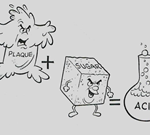 Bacteriain the PLAQUE in your mouthturns food (sugar) on your teeth into ACID.
To understand an acid attack on your teeth, we need to first look at the tooth structure.
Bacteriain the PLAQUE in your mouthturns food (sugar) on your teeth into ACID.
To understand an acid attack on your teeth, we need to first look at the tooth structure.
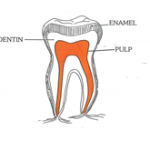 The Enamelis…
The outside layer.
-A hard protective covering.
-The hardest substance in our body, even harder than bone.
The Pulpis…
The inside layer.
-The live part of the tooth.
-Has blood vessels and nerves.
The Dentinis…
Underneath the enamel.
-Makes up the largest part of a tooth.
-Hard, but not as hard as enamel.
An acid attack:
The Enamelis…
The outside layer.
-A hard protective covering.
-The hardest substance in our body, even harder than bone.
The Pulpis…
The inside layer.
-The live part of the tooth.
-Has blood vessels and nerves.
The Dentinis…
Underneath the enamel.
-Makes up the largest part of a tooth.
-Hard, but not as hard as enamel.
An acid attack:
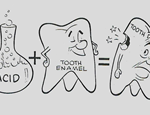
Acid produced by the bacteria in our plaque destroys the tooth’s enamel and, after repeatedattacks, creates a hole or “cavity.”
Diet and Nutrition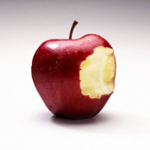 Your diet includes allthe food you eat each day whether the food is healthy or not (junk food).
Your diet needs toinclude a variety offoods in order foryou to have goodnutrition and goodoral health.
Snacking
Your diet includes allthe food you eat each day whether the food is healthy or not (junk food).
Your diet needs toinclude a variety offoods in order foryou to have goodnutrition and goodoral health.
Snacking
 Snacks between meals are a great way to provide food you need daily for:
1. Growth
2. Energy
3. Learning
4. Healthy Bones,Skin and Teeth
But, if you make poor choices, snacks can cause dental problems…
Soft Drinks
Snacks between meals are a great way to provide food you need daily for:
1. Growth
2. Energy
3. Learning
4. Healthy Bones,Skin and Teeth
But, if you make poor choices, snacks can cause dental problems…
Soft Drinks
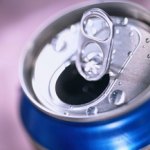 Frequent soda drinking can cause toothdecay when sugar (and acid) combinewith bacteria in the mouth to form more acid.
Even diet, sugar-free sodas contain acidwhich harms your teeth.
Each sip causes a 20-minute acidattack that may cause tooth decay.
Results of Tooth Decay:
Pain and infection
Difficulty in speaking
and chewing
Difficulty concentrating
Loss of self-esteem
Lost school days
Poor nutrition
Cost of care
Besides tooth decay, harmful habits or activities can damage your teeth…
Keep Foreign Objects Out of the Mouth
Frequent soda drinking can cause toothdecay when sugar (and acid) combinewith bacteria in the mouth to form more acid.
Even diet, sugar-free sodas contain acidwhich harms your teeth.
Each sip causes a 20-minute acidattack that may cause tooth decay.
Results of Tooth Decay:
Pain and infection
Difficulty in speaking
and chewing
Difficulty concentrating
Loss of self-esteem
Lost school days
Poor nutrition
Cost of care
Besides tooth decay, harmful habits or activities can damage your teeth…
Keep Foreign Objects Out of the Mouth
 Don’t Use your teeth to:
Cut things
Hold onto pens/pencils
Bite nails
Crack nuts
Crunch ice
Open bottles or hairpins
Sports
Don’t Use your teeth to:
Cut things
Hold onto pens/pencils
Bite nails
Crack nuts
Crunch ice
Open bottles or hairpins
Sports
 Always wear a mouthguard for physicalcontact sports
Seek immediate treatment if a tooth
is knocked out (within 30 minutes).
-Do NOTclean the tooth.
-Do NOT touch the wound site.
-Keep the tooth WET.
(Put it in a glass of cool water, milk or in your own saliva in the mouth).
Tobacco & Smoking
Always wear a mouthguard for physicalcontact sports
Seek immediate treatment if a tooth
is knocked out (within 30 minutes).
-Do NOTclean the tooth.
-Do NOT touch the wound site.
-Keep the tooth WET.
(Put it in a glass of cool water, milk or in your own saliva in the mouth).
Tobacco & Smoking

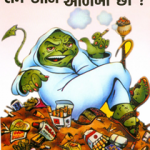 All Tobacco Products are Harmful
Stained teeth
Plaque build-up
Bad breath
Mouth sores
Gum disease
Tooth loss
Greater chancefor oral cancer
SmokelessTobacco Causes:
All Tobacco Products are Harmful
Stained teeth
Plaque build-up
Bad breath
Mouth sores
Gum disease
Tooth loss
Greater chancefor oral cancer
SmokelessTobacco Causes:
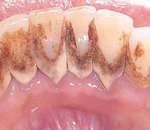 Tooth abrasion
Gum recession
Increased tooth decay
Tooth discoloration
Bad breath
Addiction
Oral cancer
What is gum disease?
Tooth abrasion
Gum recession
Increased tooth decay
Tooth discoloration
Bad breath
Addiction
Oral cancer
What is gum disease?
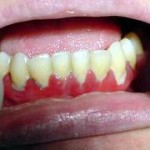 A bacterial infectionin the mouth caused by the accumulation of plaque on the teeth
Gingivitis
A bacterial infectionin the mouth caused by the accumulation of plaque on the teeth
Gingivitis
 Gingivitis is a mild formof gum disease, and the most common.
It is reversibleand involves only the gum tissues around the teeth.
Signs:Bleeding when brushing or flossing, puffy, red tissues between the teeth, and pain or tenderness.
Periodontitis
Gingivitis is a mild formof gum disease, and the most common.
It is reversibleand involves only the gum tissues around the teeth.
Signs:Bleeding when brushing or flossing, puffy, red tissues between the teeth, and pain or tenderness.
Periodontitis
 Periodontitis is the more destructive form of gum disease. It is notreversible and involves permanentloss of the gums and underlying bone eventually leading to toothloss.
Signs:Chronic bad breath, receding gums, and teeth that are loose (bleeding may or may not occur).
Recently scientists have found a possible link between Gum Disease and certain conditions like:
Diabetes
Heart Disease
Pre-term, low birth weight babies
Why should you be concerned?
Periodontitis is the more destructive form of gum disease. It is notreversible and involves permanentloss of the gums and underlying bone eventually leading to toothloss.
Signs:Chronic bad breath, receding gums, and teeth that are loose (bleeding may or may not occur).
Recently scientists have found a possible link between Gum Disease and certain conditions like:
Diabetes
Heart Disease
Pre-term, low birth weight babies
Why should you be concerned?
 Diabetes :
Diabetes is on the rise in childrenand youngadultsdue to poor nutrition, lack of exercise and obesity.
If you have diabetes, gumdiseasemay affect your ability to control your blood sugar.
American Dental
Heart Disease :
Evidence suggests that the bacteria found in your mouth from gumdiseasemay have an effect on blood vessel walls, causing inflammation and blockage of blood flow to the heart and brain.
We can Straighten your Smile!
Diabetes :
Diabetes is on the rise in childrenand youngadultsdue to poor nutrition, lack of exercise and obesity.
If you have diabetes, gumdiseasemay affect your ability to control your blood sugar.
American Dental
Heart Disease :
Evidence suggests that the bacteria found in your mouth from gumdiseasemay have an effect on blood vessel walls, causing inflammation and blockage of blood flow to the heart and brain.
We can Straighten your Smile!
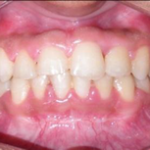 As a young adult, what you do nowcan prevent many problems from occurring later on….
By investing only six minutes each day, both tooth decay and gum disease can be prevented by you…
…That’s two minutes twice each day spent on brushing andtwo minutes once a day for flossing.
Proper Brushing
As a young adult, what you do nowcan prevent many problems from occurring later on….
By investing only six minutes each day, both tooth decay and gum disease can be prevented by you…
…That’s two minutes twice each day spent on brushing andtwo minutes once a day for flossing.
Proper Brushing
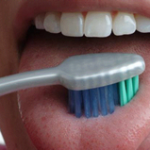 Tilt the brush at a 45° angle against the gumline. Brushing only 2-3 teeth at a time, gently brush the outside, inside and chewing surfaces of all your teeth.
Use short back-and-forth or circular strokes.
Don’t forget to brush your tongue to remove bacteria and freshen your breath!
Proper Flossing
Using your middle fingers, wrap about 18” of floss around them (but not too tightly). Leave about an inch or two of floss between your hands.
Now, gently follow the curves of your teeth, sliding the floss up and down the tooth’s surface a few times. Be sure to go below the gumline.
Personal Choices
Tilt the brush at a 45° angle against the gumline. Brushing only 2-3 teeth at a time, gently brush the outside, inside and chewing surfaces of all your teeth.
Use short back-and-forth or circular strokes.
Don’t forget to brush your tongue to remove bacteria and freshen your breath!
Proper Flossing
Using your middle fingers, wrap about 18” of floss around them (but not too tightly). Leave about an inch or two of floss between your hands.
Now, gently follow the curves of your teeth, sliding the floss up and down the tooth’s surface a few times. Be sure to go below the gumline.
Personal Choices
 Choose healthy snacks and eat fewer foods that are high in sugar.
Limit soda drinking and rinse your mouth afterward.
If you are thinking about smoking – don’t start. And if you smoke – quit before the damage is permanent.
If you already…
- Have your tongue/mouth pierced
- Have diabetes
- Know you are pregnant
Your oral health contributes to your overall health
Choose healthy snacks and eat fewer foods that are high in sugar.
Limit soda drinking and rinse your mouth afterward.
If you are thinking about smoking – don’t start. And if you smoke – quit before the damage is permanent.
If you already…
- Have your tongue/mouth pierced
- Have diabetes
- Know you are pregnant
Your oral health contributes to your overall health
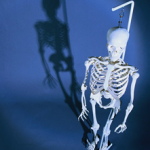 And by practicing good oral hygiene habits you can help prevent tooth decay, gum disease and possibly some serious health issues….
Brush and Floss Daily for Good Oral Health!
VISIT YOUR DENTIST ONCE IN EVERY 6 MONTHS
And by practicing good oral hygiene habits you can help prevent tooth decay, gum disease and possibly some serious health issues….
Brush and Floss Daily for Good Oral Health!
VISIT YOUR DENTIST ONCE IN EVERY 6 MONTHS










